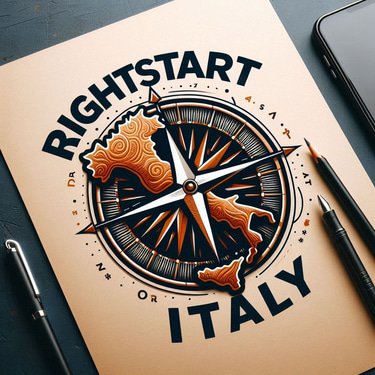
Nurturing Young Minds in Italy
Thinking about sending your child to an Italian asilo (kindergarten)? Italian preschools balance play-based learning with a strong emphasis on social skills and creativity—offering quality education that can help your little one feel right at home. But adapting to this system also requires patience, cultural awareness, and language learning, making it essential to embrace the experience thoughtfully.
Choosing a local school isn’t just about academics—it’s one of the most powerful ways your whole family can integrate into Italian community life.
Italian Preschool (Asilo) and the School System
Italian early childhood education—asilo nido (nursery) for ages 3 months to 3 years and scuola dell’infanzia (preschool/kindergarten) for ages 3 to 6—is optional, yet widely embraced. Nearly 95% of children participate in these programs, laying a strong foundation in speech, social skills, creative play, and emotional development.
Through playful, non‑academic learning, these classrooms focus on language, movement, arts, and collaboration—often inspired by progressive educational approaches like Montessori and Reggio Emilia, which emphasize creativity, environment-as-teacher, and community involvement.
From age 6, children transition to scuola primaria (primary school), which is compulsory. Here, students receive a well-rounded education in Italian, math, science, history, geography, and foreign languages—usually English, see the link from Expat Focus.
The Benefits—and the Reality
These schools are publicly funded, high quality, and deeply integrated into their local communities. As an expat family, enrolling your child in an Italian school environment is one of the most effective ways to learn the language quickly, make local friends, and fully immerse in the community.
On the flip side, integrating into the system requires commitment and effort—many aspects like paperwork, ISEE means testing, and cultural norms differ from international or English-speaking schools Without language skills or support, both children and parents may initially find the process challenging.
Bottom Line
Italian preschools and schools offer excellent educational value, rooted in play-based learning, social foundations, and holistic development. For families willing to engage intentionally—learning the language and culture—this system delivers real integration and community belonging. But it's not for everyone, and taking incremental steps and treating the experience realistically will set expectations wisel




Contact us Directly
rightstartitaly@gmail.com
© 2025. All rights reserved.
Connect
Disclaimer: The content on Right Start Italy is informational and educational purposes only. While every effort is made to ensure accuracy and relevance, the information presented may not reflect the latest developments or specific circumstances. Readers are encouraged to seek professional advice or consult experts in areas such as legal, financial, medical, or other specialized matters before making decisions based on the information provided.
User Responsibility:
By using this website, users acknowledge that they do so at their own risk. Right Start Italy will not be held liable for any losses, damages, or inconveniences arising from the use of this site or reliance on its content.
Copyright Notice:
All content, including text, images, and graphics, is the property of Right Start Italy and Learning unless otherwise credited. Unauthorized use or reproduction is prohibited. For questions or concerns, please contact us via the Connect Section.
